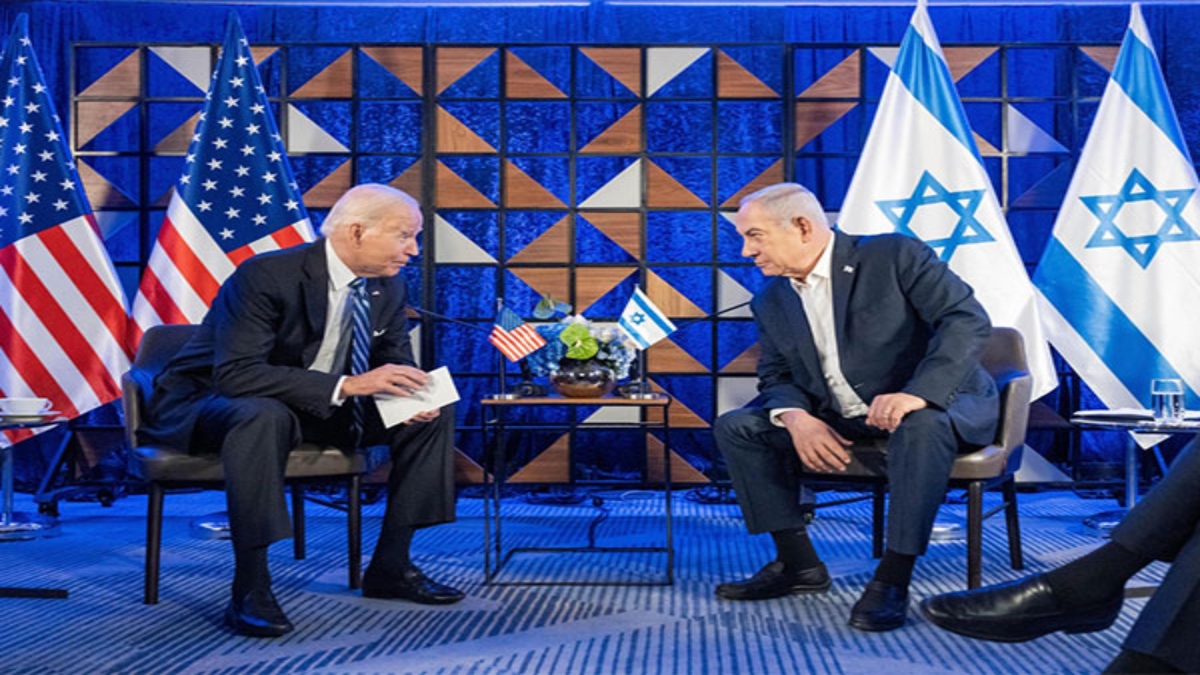The Israeli government has assured the Biden administration that it will refrain from targeting Iran’s nuclear or oil sites in its response to Tehran’s recent missile attack, according to reports.
According to a Washington Post report, citing two US officials, Prime Minister Benjamin Netanyahu informed Washington of his willingness to strike military facilities in Iran.
US officials noted that Israel has committed to focusing its upcoming strikes on military targets rather than sites associated with Iran’s oil industry or uranium enrichment activities.
According to The Associated Press, the Biden administration also believes that sending a US Terminal High Altitude Area Defence battery to Israel and roughly 100 soldiers to operate it has eased some of Israel’s concerns about possible Iranian retaliation and general security issues.
The Pentagon on Sunday announced the deployment of THAAD to enhance Israel’s air defences following Iran’s ballistic missile attacks in April and October, authorised by President Joe Biden.
However, US officials, speaking anonymously, cautioned that this assurance is not guaranteed and could change. They pointed out Israel’s mixed track record in fulfilling past commitments, often influenced by domestic politics, reported The Associated Press.
A recent example involved Israeli officials indicating Prime Minister Netanyahu’s support for a US- and French-led cease-fire initiative for Lebanon, only for Israel to launch a major airstrike that killed Hezbollah chief Hassan Nasrallah two days later.
Impact Shorts
More Shorts“We consider US opinions, but our final decisions will be based on national interests,” The Associated Press quoted Netanyahu’s office as saying.
West Asia is on high alert following Iran’s launch of around 180 ballistic missiles on October 1, which the US helped to intercept. The ongoing tit-for-tat strikes have raised concerns about a potential escalation into a regional war, especially with Israel considering strikes on Iran’s energy and nuclear sites.
Israel’s military operations against Hamas in Gaza have now extended into a ground invasion of Lebanon, targeting Hezbollah, another Iranian proxy that has been attacking Israel since the conflict began a year ago.
President Biden has advised against an Israeli retaliatory strike on Iran’s nuclear facilities and has urged caution regarding potential impacts on global oil prices, especially with the US presidential election approaching.
Biden and Netanyahu spoke over phone last week for the first time in seven weeks, while Defence Secretary Lloyd Austin has maintained regular communication with Israeli Defence Minister Yoav Gallant.
The Pentagon reiterated US support for Israel’s security but stressed the need for protections for UN peacekeepers in southern Lebanon, a shift towards diplomatic solutions, and immediate actions to address the humanitarian crisis in Gaza. The White House declined to confirm if Netanyahu provided any specific assurances regarding targets during their conversation.
“Our commitment to Israel’s defense is ironclad,” the White House National Security Council said in a statement. “We will not discuss private diplomatic discussions and would refer you to the Israeli government to speak to their own potential military operations.”
With inputs from agencies
)